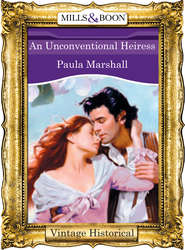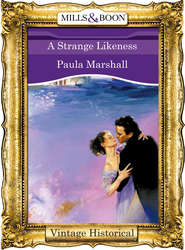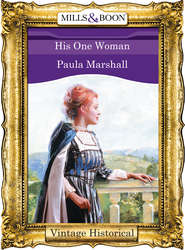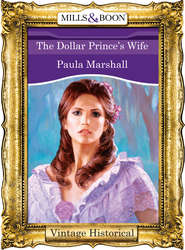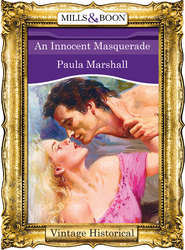По всем вопросам обращайтесь на: info@litportal.ru
(©) 2003-2024.
✖
The Astrologer's Daughter
Настройки чтения
Размер шрифта
Высота строк
Поля
Why, Sir Christopher Carlyon, Bart, thought himself Judas that he wagered what was precious to him on such a thing, with such a creature as George Buckingham had become. Save that I am no better he thought, and, yes, the girl must take her chance.
‘Now, my Celia, my wench, if thou hast cast the horoscope for which Sir William asked, then let me have it. You have saved mine eyes the pain.’
Adam Antiquis, outwardly hale at sixty, although inwardly failing, stood in his luxurious parlour at the back of his fine house in the Strand. Once he had been able to enjoy the view of the gardens outside, see the small wooden summer-house where he was wont to sit on a fair evening, listening to Celia as she played the viol for him, but latterly his sight had begun to dim.
Celia, her hand on the parchment on which she had inscribed Sir William Harmer’s horoscope, lifted her blonde head and smiled at him. ‘And what regard for my pains, sir?’ she asked demurely, teasing him a little, for he well knew that she never asked for reward, being content to serve him.
Adam was about to answer when Mistress Hart, their housekeeper, came in carrying a flagon of good sack and two metal goblets on a silver tray. ‘Master, mistress, as you commanded,’ she said, and placed the tray on the oak table before Celia, neatly avoiding the parchment, inkhorn and Celia’s quill.
‘Pour out the drink,’ commanded Adam in his most noble vein. He had been born a poor yeoman’s son in Leicestershire, by the name of Archer. But nobler far was Antiquis, he had thought, for one who had set up as an astrologer, counting Elias Ashmole as his master and William Lilly, another Leicestershire man, as his friend and rival.
Nothing of his origins remained. He was as finely dressed as any courtier—if more soberly—in black velvet with silver trimmings, to match his luxuriant silver hair. Celia was the child of his middle years and his wife had died at her birth. She was like her father, not her dead mother. Her face was noble, classic—a Greek nose, great grey eyes beneath fine black eyebrows, her mouth long and firm, but generous. Her blonde hair, deeply waved, was caught simply back in a great knot.
Her clothes were simple, too. A grey gown with a while linen collar edged with fine lace, all spotless. Both of the Antiquises were spotless in clothes and body—for Adam had long noted that the clean lived longer than the dirty and were less inclined to agues and bad humours. He and Celia bathed frequently in water drawn from a well far from cesspits.
‘I would thou gave me a reward,’ he said, putting down the goblet. ‘A reward which would please me, seeing that I am old and failing. I would not die leaving you alone and unprotected. Robert Renwick, the goldsmith, came yester eve to ask if he might offer for you. He would want a dowry, he said, to which my answer was, “No heed of that, Master Renwick, for Celia is all I have and will inherit all that is mine.” He is a good man, Celia, and would treat you well, I have no doubt. His first wife was well cared for, ’till the sweating sickness took her.’
Celia rose, holding the goblet before her, and stood quite still to say at last, ‘I have a mind to die a virgin, as you have long known, Father. I also have a mind to carry on your work. You have trained me well, but I think Robert Renwick would not want his wife to be other than his housekeeper and his bed-mate.’
Adam sighed, walked to the window, peered out of it, inwardly cursing his blurred sight and his failing body.
‘I should not have trained you as I would have done a son,’ he answered her. ‘It pleased me to do so, and well you have rewarded me. You are better than most sons and, for a woman, your grasp of matters both plain and arcane is remarkable. But I have done you no favours. Times are changing, daughter. Sarah Ginner might be an astrologer under the Commonwealth, but the lives of women become ever more straitened. You would be safer as Renwick’s wife. I would not die thinking you in danger, or penniless, or to be despoiled by the ruthless. Say you will obey me in this. You have never refused to obey me before.’
He had never asked such a thing of her before. Robert Renwick was well enough. He was older than she was—thirty-five to her twenty-two—but that was not it, either. He was heavy, dull: he would not wish his wife to know more than he did. He would cabin her—confine her to his kitchen, his bed, to be the mother of his sons. He was not asking for her out of love, she thought, but out of expedience—and Adam was passing rich. That must weigh with him, for all would come to him if he married her, and she—why she would be his chattel, nothing more.
Adam had made her his equal—and now he wished her to be another man’s slave. She drank long and deep, but hardly tasted the sack.
‘Allow me but a time to think,’ she answered him.
‘Aye, you may have that. But not too long—the stars say that my time on earth is nearly run and my body answers yes to them. And catastrophe awaits London—whether the plague or the fire, as Lilly thinks, I do not know, but I would have thee settled first.’
Celia knew that he was disturbed when he used thee and thou so freely. She put the goblet down on the table. ‘And meantime, Father?’
‘Meantime, my Lord of Buckingham comes this afternoon, my girl. He wishes me to make an election. Of what, his messenger did not say. But he will pay well, I think, and he is not a man to deny. You will be my eyes, will you not?’ Writing was beginning to be a burden to him and Celia was his hand as well as his sight.
He added, abruptly for him, ‘And he is a man you would be safe from if you married Renwick. He would have no occasion to meet you then. I would not have you with us when he calls, save that my sight needs thee. You understand me, daughter?’
Oh, Celia understood him. She had not known that her father had read Buckingham, and read him aright. He frequently visited Adam, to commission him to draw up an election, which was a decision on some important matter, to be made by consulting the disposition of the stars. But he also came to pursue Celia, to place a careless hand on her when she passed him and then, when her father was not by, to suggest with obscene directness that she become his bawd, his plaything.
Celia did not like him. Handsome he might be, and the housekeeper cast sheep’s eyes on him, but there was something about him which made her shudder. Besides, the stars said that he was a danger to her. Adam had cast Buckingham’s horoscope for him and she had written it out, and there, lo, when she placed it beside her own, was the message that she was in an unknown way tied to him.
Fear rode on her shoulders, for Buckingham was great, and she and Adam, for all their arcane knowledge and the respect in which the commonalty held them, were small.
There was a bustle outside—a noise. It was the Duke, come with all the train which his state demanded, rowed downriver from Whitehall in his barge, doubtless, surrounded by his minions, to come to leer at Celia Antiquis while using old Adam’s knowledge which increasingly, as he aged, was her knowledge.
The door was rapped upon, was opened. Mistress Hart was there, curtsying to the visitors, her head held low. A steward stood before her, a white staff in his hand. Today my lord of Buckingham had come as Duke, not as he sometimes did, informally, to lean on Adam’s shoulder and call him friend.
Buckingham entered. He was all gravity, in black and gold. There was a pearl in his right ear; the wig above his handsome dissipated face was like his silver-blond hair—except that it had not faded with age. He had his right arm draped round the broad shoulders of a man whom Celia had not seen before and was whispering in his ear. None other was with them.
Celia, curtsying, avoided the eyes of both of them. Like a wild creature, she would not give the Duke a direct glance of her eyes, keeping her head submissively low, focusing her attention on the white bows of her polished black shoes.
His Grace would not allow her that. He pulled his arm away from his companion’s shoulders, nodded briefly to Adam, put a hand under Celia’s chin to tip her face towards him.
‘I would have a proper greeting from you, mistress. And one for my friend, Sir Christopher Carlyon, too. He hath a mind for you to cast his ’scope, or provide him with an horary—is not that so, Kit? What question shall thy horary answer? Nay, that you must tell the maiden, not myself. She is your eyes, is she not, Master Antiquis?’
If Adam disliked His Grace’s easy handling of his daughter there was no show of it in his manner. He murmured his agreement, offered the Duke a chair as Celia bowed to the two men. Sir Christopher stood beside it, leaning on the chair-back, curious green and hazel eyes roving the elegant parlour.
Celia had been compelled by the Duke to look Sir Christopher Carlyon straight in the eye. She saw a tall man, taller than the Duke, more carelessly dressed in green and silver, whose face was deceptive, for while he was not handsome there was something compelling in it. As she looked at him, the room moved around her. For a moment Celia was lost. She had had such a fit before, where her body remained but her spirit roved, but never such a profound one. Adam knew of her rare trances and they frightened him, for nothing he had read, or been taught, could explain them.
She was in the open. There was a smell of burning and the sky was not blue, but black and orange. The air was not fresh, but hot and humid. People were shouting and the face of Sir Christopher Carlyon was before her, strangely distorted. She thought that he was shouting but she could hear nothing.
And then she was back in the parlour again, the sweet smell of spring was coming through the window, the smell of fire had gone. No time at all had passed, and yet an infinite time had held her imprisoned.
The green and hazel eyes were hard on her. She knew that her face changed on these occasions, that her eyes became wide and blank. He had seen the change, the shift of her consciousness, and he said, leaning forward, ‘You are ill, mistress? Master Antiquis, your daughter needs attention, I think.’
His voice was beautiful, a caress, the voice of a singer or an actor. For sure he was neither. Her spirit, that sometimes remained with her after her trance had passed, told her that he was, or had been, a soldier. The spirit vanished. She was ordinary Celia Antiquis again, saying in a submissive voice, as colourless as she could make it, ‘It is nothing, sir. A passing malaise only.’
She was surprised that he had registered that something strange had happened to her. It supposed a sensitivity in him which she would not have thought he possessed. The green eyes were suddenly veiled and Sir Christopher waved a dismissive hand. ‘Enough, then, mistress. George, I must not stop you from your business here.’ He looked through the open window at the pretty garden and turned his green eyes away from Celia as though, restored again, she bored him.
Celia’s surprise was now at herself. She sat down at the table, listened to her father taking the Duke’s instructions, heard her father’s answers and wrote in her clear plain script at his instruction, and was, astonishingly, piqued at Sir Christopher’s lack of interest in her.
Kit, his friend called him. Or was the Duke his master? She thought not. No one was his master. Green-eyes was owned by none. How did she know that? She did two things at once, a trick Adam had taught her. She was achingly aware of Sir Christopher’s every movement while appearing to be absorbed in her work. He was listening to the Duke, who needed advice from Adam on a financial enterprise.
‘I will leave it to you, Master Antiquis. You will bring me your answer to Whitehall, will you not? And your daughter shall accompany you. You may need her eyes and her good right hand.’ He had risen from his seat and walking over to where Celia worked, he said idly, ‘You write a fair hand, mistress.’
He made no move to touch her or to woo her as he had been wont to do in the past. Was it because of his friend, or had he lost interest in her? She was grateful for that if he had.
Celia continued her work for a moment; the horoscope grew on the parchment before her. She consulted an almanack.
Buckingham surveyed the parlour. ‘A fair room, sir. Thy presses are fit for the treasures you display in them.’ And he gestured at the books behind the glazed doors of the presses. ‘Hast a fine library, and a strange one. There are texts here, sir, that would have brought you down under the late tyrant, Cromwell.’ He swung on his red-heeled shoe to stare at his friend. ‘Silent, Kit? Most unlike you. I have a mind to be entertained. Entertain me—and the astrologer and his daughter, too.’
Kit remained silent, neither agreeing nor disagreeing with him. Buckingham clapped his hands together loudly. His steward, white rod in his hand, who had been standing the while beside the door, started towards him. ‘Your Grace?’
‘Fetch the servants and the food and bid Sir Kit’s man bring him his guitar. A fair white cloth as well, to cover Master Antiquis’s good table after the French fashion. I would eat, sir. You will join me?’
It is his house now, not ours; these great ones own all that they desire or see, thought Celia resentfully, looking up to catch Sir Christopher’s eyes on her. They said, silently, I know what you are thinking. Adam, by contrast, showed his pleasure at the Duke’s condescension, spoke to him with a catch in his voice.
‘You will do me a great favour, Your Grace, and drink of my wine, before you eat?’
The Duke waved a beautiful careless hand, flung his arm about Kit’s shoulders again and, after agreeing to drink with Adam, announced, with none to say him nay, ‘We shall drink in thy garden, Master Antiquis, thou and I and Kit and thy daughter. When his servant brings his guitar, Kit shall sing for us as we drink. What is better on an afternoon of sun and scents, such as this, but to eat and drink and listen to good music? Faith, they have no better time of it in heaven. Cherubim, seraphim, powers and principalities will envy us.’
Kit has little to say for himself, was Celia’s sardonic thought; he leaves all to his master—for Kit merely nodded his agreement and Adam opened the door to the garden and they all walked through, the Duke leading. Outside, the early April afternoon was as warm as June. The sun was up and high. The flowers were all out as though it were very June, indeed. Apple trees, a crab among them, arched their boughs over them. The Duke flung himself on the garden bench, Kit at his feet, and motioned to Celia and Adam to sit with him, their seat being the grass, already yellowing. It had not rained for weeks.
Kit’s man brought his guitar, Mistress Hart the wine and goblets. Adam was proud that his possessions were so fine. The yeoman’s cottage where he had begun his days seemed far away. The steward came and a man following him in the Duke’s colours handed the wine about. Kit tuned his guitar, bent his head over it, looked up and this time collected Celia’s eyes.
‘A song for you, mistress, seeing that you have been a good and obedient clerk. It is one of the late Will Shakespeare’s and is a favourite of George’s. The cherubim will envy this.’ It was the longest speech he had yet made. His musician’s hands plucked the strings. He sang, and his voice was so soft and tender that the tears started in Celia’s eyes.
O mistress mine! where are you roaming?






